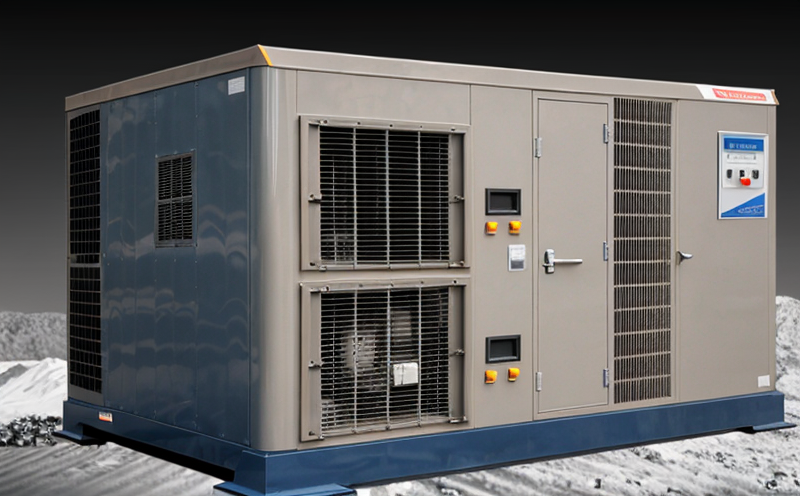IEC 60068-2-50 Solar Radiation Environmental Stress Testing
The IEC 60068-2-50 standard defines the test procedures for solar radiation environmental stress testing. This type of testing is critical in ensuring that semiconductor and microchip components can withstand the harsh conditions they may encounter in real-world applications, particularly in outdoor environments.
During this testing, specimens are exposed to intense solar radiation using specialized equipment designed to simulate the effects of direct sunlight, including ultraviolet (UV) rays and infrared (IR) radiation. The test apparatus typically includes a xenon arc light source or another suitable device capable of generating high-intensity radiation within the specified spectral range.
The purpose of this testing is multifaceted: it ensures that components remain operational under extreme conditions, prevents premature failure due to environmental factors, and guarantees consistent performance across different geographical regions. This testing plays a pivotal role in the quality assurance process for semiconductor manufacturers who aim to meet international standards and customer expectations.
Specimen preparation is crucial; the components must be mounted on appropriate test fixtures that allow for accurate measurement of temperature gradients and irradiance levels during the exposure period. The duration of the test varies depending on the specific requirements set by the client, but it generally ranges from several hours to a few days.
Once testing is complete, detailed reports are generated documenting all parameters measured throughout the process, including peak temperatures achieved, energy absorbed, and any changes in performance metrics. These reports serve as valuable data points for R&D teams looking to improve product reliability and durability.
The acceptance criteria for this test involve evaluating whether the component maintains its electrical characteristics within specified limits after exposure to solar radiation. If deviations from these norms are observed, further analysis may be conducted to identify potential root causes of failure or degradation.
Benefits
- Enhanced reliability: Ensures that semiconductor and microchip components can operate safely under extreme solar radiation conditions.
- Improved product longevity: Identifies potential weaknesses early in the development cycle, allowing for necessary design modifications before mass production begins.
- Promotes compliance with international standards: Helps manufacturers meet regulatory requirements associated with export markets where stringent environmental testing is mandated.
- Reduces costs associated with field failures: By identifying issues during controlled laboratory tests rather than after products have been deployed, companies can save money on warranty claims and service calls.
Eurolab Advantages
As a leading provider of IEC 60068-2-50 solar radiation environmental stress testing services, Eurolab offers several advantages:
- State-of-the-art facilities: Our laboratories are equipped with the latest technology to ensure accurate and reproducible test results.
- Expertise in semiconductor technology: Our team comprises highly skilled engineers and scientists who possess deep knowledge of both the physical properties of semiconductors as well as their application in various industries.
- Comprehensive testing capabilities: We offer a wide range of complementary tests that can be performed alongside solar radiation stress testing, providing clients with an integrated approach to quality assurance.
Competitive Advantage and Market Impact
Eurolab's commitment to excellence in IEC 60068-2-50 solar radiation environmental stress testing gives us a significant competitive edge:
- We deliver faster turnaround times without compromising on quality, enabling our clients to bring products to market more quickly.
- Our rigorous adherence to international standards ensures that we are at the forefront of industry best practices, helping companies stay ahead of competitors who may not meet these same high standards.
This service has a profound impact on the semiconductor and microchip testing market by driving innovation through early identification of design flaws, fostering trust among consumers regarding product safety and effectiveness, and facilitating international trade by ensuring compliance with global regulatory frameworks.





